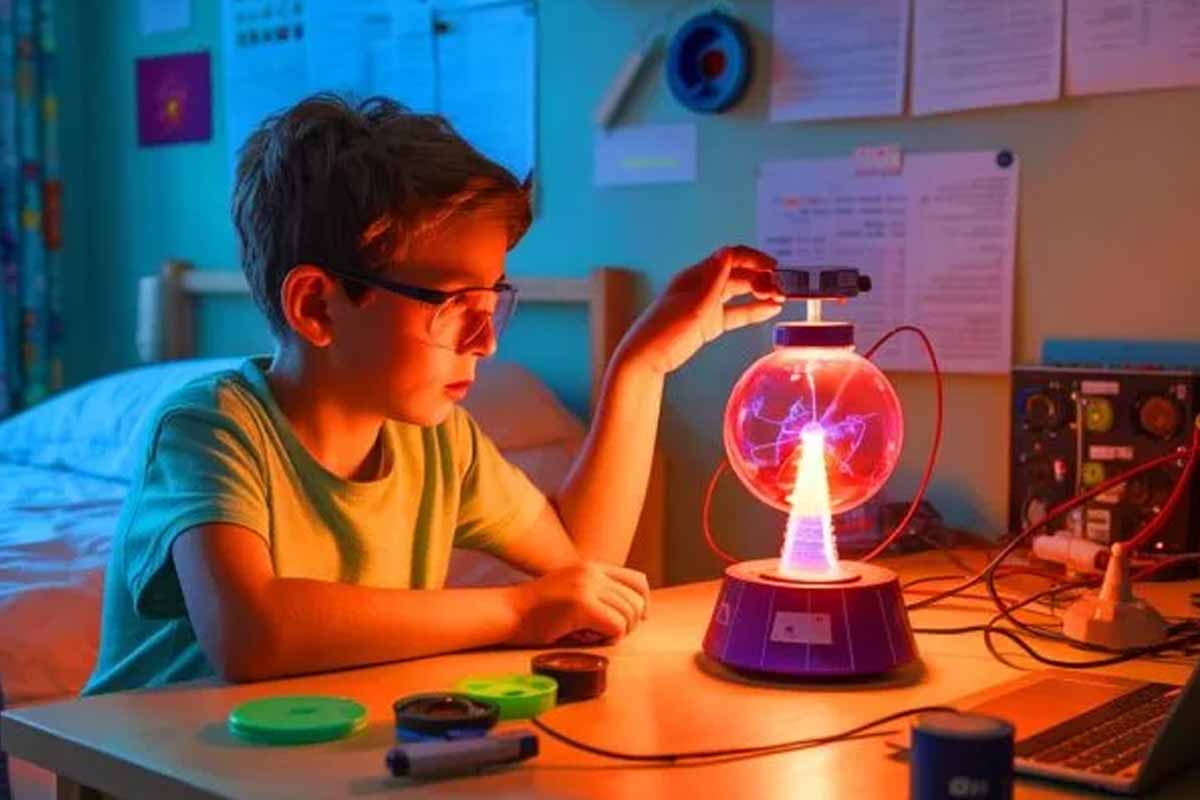FBI storms nuclear lab isn’t the real story here, though the phrase still clings to headlines. This tale begins in a bedroom crowded with wires, pumps, and stubborn curiosity. A kid looked at a problem bigger than himself and asked, why not me? That small question cracked open a larger world and rewired his days.
Curiosity with its sleeves rolled up
He wasn’t chasing likes; he was chasing understanding. Video games gave way to vacuum diagrams, parts lists, and late-night forum threads. He read about teen fusioneers and set a quiet deadline before turning thirteen. Memphis nights turned into experiments, missteps, and the kind of patience you only learn by trying. He ordered pieces from odd corners of the internet and learned to spot junk from gems. Friends asked what he was building; he shrugged and said, something that makes stars whisper.
It wasn’t a science fair volcano. It was a plan, piece by piece, held together by grit and goodwill. Search history might scream FBI storms nuclear lab, yet the scene was a kid, a notebook, and steady hands. You could hear the hum of a pump and the soft click of a breaker. No drama. Just a mind getting braver, one small fix at a time.
FBI storms nuclear lab
A fusor isn’t much to look at until it lights. A sealed chamber. Careful seals. A trickle of deuterium. Electrodes waiting for their moment. He built it slowly, learning the weird music of vacuum gauges. Leak here, tighten there, start again. January 18, 2018, the day before his thirteenth birthday, the physics finally sang. Deuterium met deuterium. Plasma bloomed like neon in a snow globe.
His name landed in Guinness, and a quiet house shook with happy noise. It wasn’t the thunder of FBI storms nuclear lab, just the buzz of achievement and a grin you couldn’t pry off. Engineers checked his work, nodded, and sent back the kind of praise you save. The reactor didn’t make power. It made proof, which is sometimes more valuable.
A knock, not a raid
Big science inside a neighborhood home draws attention, and rightly so. One afternoon, two agents showed up with Geiger counters and calm voices. They asked careful questions, measured, and looked for risks. He’d done his homework: shielding in place, procedures posted, numbers logged. Neighbors kept mowing; the dog barked once and moved on. The inspection felt thorough, not theatrical. Myth loves megaphones. Reality walks in with a clipboard.
The shouting headline that reads FBI storms nuclear lab collapses into a routine check that ends with thank you. No threat to the block, no midnight drama, no confiscated dreams. He learned something too: curiosity gains power when it respects safety. Science moves smoother when caution isn’t an afterthought. That lesson sticks longer than any headline can.
From plasma to new frontiers
After the burst of attention, he didn’t freeze in place. He pivoted like builders do when a door opens. Hardware still called to him, but new puzzles surfaced. He stepped into an AI lab and started wiring ideas to machines. Different field, same hunger. Interfaces, sensors, and the quiet satisfaction of making tools feel human. The first time a model responded just right, it felt like plasma all over again. Creation humming where silence used to be. Feeds kept recycling FBI storms nuclear lab, while he was learning to speak fluent circuitry and code.
He found mentors who cared about questions more than reputations. He carried forward the habits that got him here: log everything, test slowly, listen to anomalies. At night, he still chased rabbit holes and scribbled notes in the margins. Some kids collect jerseys. He collects solved problems and half-finished sketches of the next one.
Why fusion still matters
Fusion isn’t a parlor trick. It’s an ancient furnace, shrunk and borrowed for a moment. Fission splits; fusion marries light atoms and throws off energy. The dream is clean power without long-lived waste. His rig didn’t break even, and that’s fine. It wasn’t supposed to. It was a working lantern for a tough subject. Teachers used his story to show what stubborn curiosity can build at home. You can trace a line from that bedroom glow to tomorrow’s labs. Strip away the noise of FBI storms nuclear lab, and you see a clearer truth. Progress isn’t always loud. It taps, nudges, and insists. It happens at kitchen tables, in garages, and in chat threads where strangers swap fixes.
Young minds carry these torches farther than we expect. Give them tools, give them room. Give them the safety brief, the checklist, and permission to fail without shame. One day they’ll hand back a solution we couldn’t reach. He didn’t conquer physics, he made a dent and showed what attention can do. And he reminded us that wonder thrives on small, repeated efforts. He proved you can build something bright in an ordinary room.
Not the spectacle some headlines sell, not the fear they borrow. Just work, patience, and a moment when the glow finally arrives. And if the world keeps shouting FBI storms nuclear lab, let it. The rest of us know the better story the one powered by care, courage, and a light you can hold.
